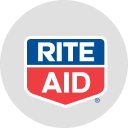
Ddavp Rhinal Tube Coupons & Discount Card – Guaranteed Prices from $265.76
My prescription
Edit
2.5ML of 0.01%, Ddavp Rhinal Tube (1 Bottle)
Select pharmacy

CVS
$267.51
COUPON PRICE
Rite Aid
$265.76
COUPON PRICE
Walmart
$267.34
COUPON PRICE
Walgreens
$278.33
COUPON PRICE
Albertsons
$287.56
COUPON PRICEDdavp Rhinal Tube savings card
Show this card to your pharmacist
Rite Aid
$265.76
BIN
ID
PCN
GRP
019876
LH270333CE
CHIPPO
LHX
Powered by
Ddavp Rhinal Tube dosage forms
| Dosage | Quantity | Price from | Per unit |
|---|---|---|---|
| 2.5ML of 0.01% | 1 Bottle | $267.34 | $267.34 |
Ddavp Rhinal Tube Warnings
Desmopressin has the potential to cause a rare but serious condition known as hyponatremia, characterized by an abnormally low sodium level in the blood. This condition can be life-threatening. Several factors can elevate the risk of developing hyponatremia, including excessive fluid intake, the use of specific medications (such as diuretics like furosemide and corticosteroids like prednisone), being over the age of 65, or having certain pre-existing medical conditions.
To ensure safety, it is crucial to conduct laboratory tests, including urine analysis and sodium blood level assessments, before initiating treatment with desmopressin and throughout its use. It is important to attend all scheduled medical and laboratory appointments.
Be vigilant for symptoms indicative of low sodium levels, such as nausea, vomiting, headaches, muscle weakness or cramps, unusual fatigue, excessive drowsiness, dizziness, restlessness, or changes in mental/mood status including confusion or irritability. Should these symptoms arise, inform your healthcare provider immediately.
In the event of severe side effects, such as seizures or difficulty breathing, seek emergency medical attention without delay.
Ddavp Rhinal Tube Side Effects
When taking this medication, you might experience some mild side effects such as headache, runny or stuffy nose, nausea, upset stomach, or facial flushing. These are generally not serious and often resolve on their own. However, if these symptoms persist or worsen, it's important to seek medical advice.
While most individuals taking this medication do not encounter severe issues, it is crucial to be aware of the potential for a very serious allergic reaction. Symptoms of a severe allergic reaction include rash, itching, swelling—particularly of the face, tongue, or throat—severe dizziness, and difficulty breathing. If you experience any of these symptoms, seek emergency medical attention immediately.
This list does not cover all possible side effects. If you observe any other unexpected effects, it is advisable to consult a healthcare professional to ensure your safety and well-being. Always stay informed about how your body responds to medication and communicate any concerns with your healthcare provider.
Why is DDAVP given intranasally?
DDAVP (desmopressin) is given intranasally because this route allows for rapid absorption through the nasal mucosa, leading to a quicker onset of action. This method is particularly useful for conditions where a fast response is needed, such as in the management of diabetes insipidus or certain bleeding disorders. Additionally, the intranasal route can be more convenient and less invasive compared to injections.
Why is desmopressin given as a nasal spray?
Desmopressin is given as a nasal spray because it allows for rapid absorption through the nasal mucosa, providing a quick onset of action. This route is particularly useful for conditions like diabetes insipidus or nocturnal enuresis, where timely control of symptoms is important. Additionally, the nasal spray can be more convenient and easier to administer for some patients compared to oral or injectable forms.
